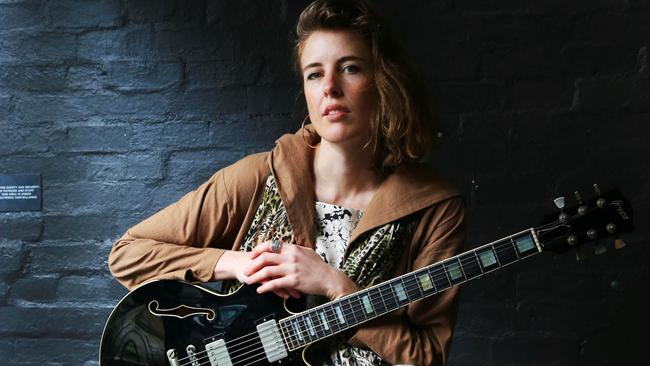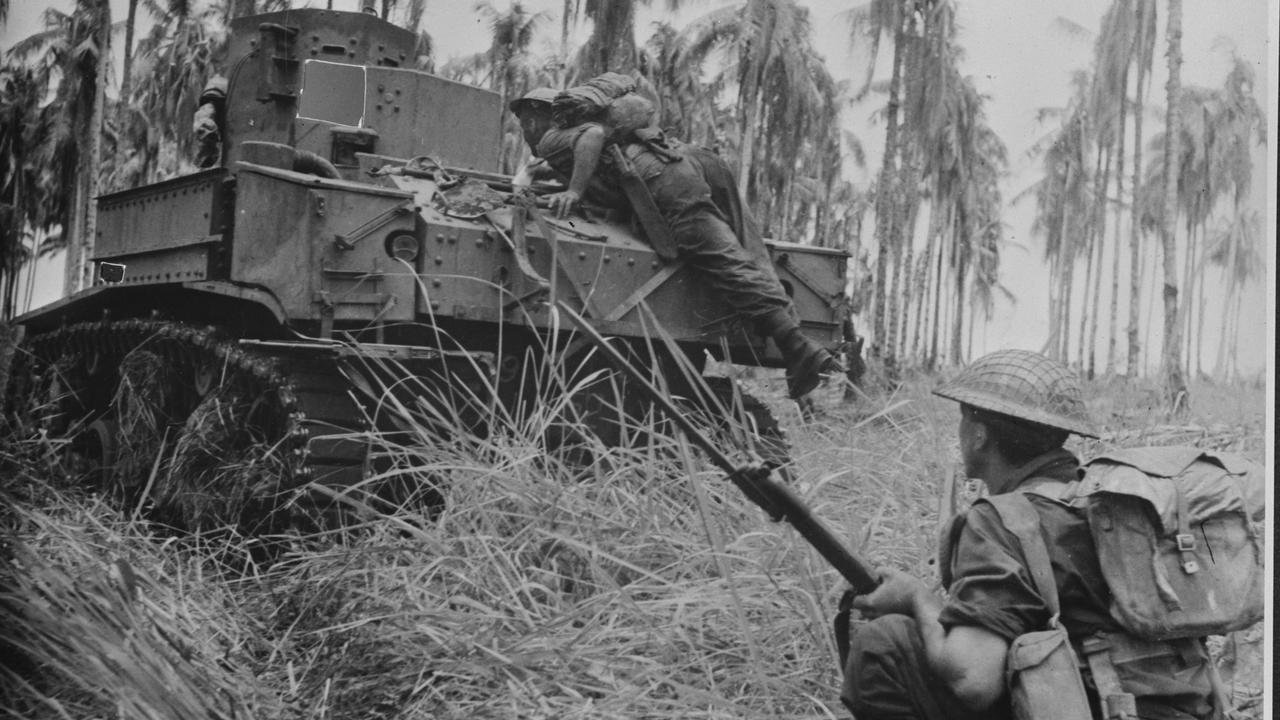Ainslie Wills: playing by her own rules
Ainslie Wills took inspiration from rule-breaking rocker Patti Smith and piano instruction from aunt Annie Luckman.

For Ainslie Wills, reading the work of Patti Smith was the key to unlocking a childhood memory that forms a chilling central narrative to her second album. The Melbourne singer-songwriter was absorbing the American writer and musician’s 1992 book, Woolgathering, and became mesmerised by the way in which Smith efficiently evoked locales, characters and scenes from long ago. Inspired, Wills read the 80-page collection of short anecdotes in a day, and began writing a song of her own.
Deep in summer, summer night
Windows open sorting the flies
Same temperature in as outside
Time to wander down the mountainside
In time, this memory would be matched to a striking acoustic guitar figure and met with a walking drumbeat. Yet after reading Woolgathering cover to cover, Wills turned her mind to her childhood in a place called Table Top, 16km north of Albury, NSW.
Onto the main road, lit by the moon
Our conversation is this night’s tune
Heat rising up through our shoes
The earth’s not cooling anytime soon
For Wills and her siblings, Table Top was a hilly, rural area far enough away from their peers that riding their bikes into town wasn’t really a viable option. The occasional pang on missing out on what their friends in Albury were experiencing, though, was offset by the pure sense of space and freedom they were afforded. While writing, Wills drew on memories of those hot summer nights to craft a sprawling and unsettling narrative named Suzie.
I think I hear a car
That engine noise is coming fast
I think I hear a car
Don’t let Suzie run ahead
Don’t let Suzie run ahead
Across six minutes, Suzie morphs from gentle acoustic instrumentation into an electronic wash of synthesisers that creates a sound completely at odds with the balladry for which Wills has become known since her 2013 debut. With the mystery of Suzie’s identity and fate left unresolved, the result is eerie, beautiful and utterly compelling.
We squat down in the bush below
To make sure that we can’t be seen by the road
We’re still calling for her to come to our side
I can feel the panic, the whites of my mother’s eyes …
“In her books, Patti is not lofty with the way she writes. It’s more very imaginative and descriptive,” Wills tells Review. “There’s a real organic, grounded nature that I love about her writing. That’s been something I’ve been attracted to, as a whole picture: how she hasn’t really played by the rules. I mean, there aren’t any rules — but sometimes we believe that there are, and I feel like she’s done what she wanted to do based on wanting to create.
“There’s that quote she was told by William Burroughs: ‘Do good work and then eventually, if you’re doing good work, then your name will have its own currency’,” says Wills. “That’s something I try to think about a lot, because it’s easy to lose sight of what we’re in this industry for.”
As the youngest of four children, she was quickly devoted to the mechanics of music. “My sister and I were the only ones that played the piano, and then I took it to the next level by being obsessive with it,” she recalls with a laugh. “That obsession has stayed with me for a long time: wanting to get so close to the music that you have to sit with it and dissect it, and see how it’s made, and what makes it sound that way. I love it.”
Looking back, Wills recognises the isolation of Table Top was an asset to her burgeoning obsession. “It was a blessing in disguise to be in that area because it shaped my whole relationship with music,” she says. “My aunty taught me how to play by ear. I’d watch her play Little Brown Jug or The Entertainer, then sit there and work it out, and she helped me develop that skill. It’s lucky to have those moments in your formative years that really influence your trajectory. She was a huge influence on my piano playing, for sure.”
Annie Luckman fondly recalls those hours at the piano with her seven-year old niece. “You could tell that the gift was there, and as I used to say when I used to teach: people would send their children to have lessons, and you’d know that they’d rather be kicking a football instead of being by the piano,” she says. “Whereas with Ainslie, you could see that she was really interested and would keep persevering with it.”
Although Luckman lived in Ballarat, about 400km southwest of Table Top, those infrequent aunt-niece tutoring sessions were eminently valuable.
“I suppose she recognised in me that strong interest and connection, and she wanted to foster that, and give of her time because she has that same connection,” says Wills. “She knew what that felt like. It’s a very generous thing of people to give their time. She’s a very keen supporter, and she’s a musician herself.”
With a laugh, Wills says: “I think she’s quite proud of her little protege.”
Having seen her niece grow from curious seven-year-old piano student to a young woman on the cusp of her second album release, what does Luckman see when she watches Wills perform today?
“Seeing her transformation from years ago, and gaining confidence, she just seems to beam like a star now,” says her earliest music teacher. “Whereas previously, she was becoming accustomed to being on stage and in the limelight — now, it’s part of her. She just belongs there.”
■ ■ ■
After high school, Wills studied music in Ballarat, then at the Victorian College of the Arts in Melbourne while also beginning to play solo gigs. It was at a concert by Canadian indie pop artist Leslie Feist that her musical direction changed, however.
“I saw her play and was completely ripped apart — it was the coolest thing I’d ever seen,” Wills recalls. “She was playing a hollow-body electric guitar, and I thought, ‘I need to get one’. In the next couple of months I ended up buying a silver sparkle Telecaster, and that led to writing songs with it. I’ve stuck with it because I love having the contrast between playing more piano-based songs and having the electric, and I often switch between them when playing live. That’s been such a great tool to have.”
In 2013, her debut album, You Go Your Way, I’ll Go Mine, was short-listed for the Australian Music Prize, yet the second release has had a long gestation. In describing All You Have is All You Need as a “U-shaped record”, Wills points to its light, guitar-based beginning, followed by a more musically dense mid-section — including Suzie and brooding seventh track Won’t You Come Along — before ending with lighter, piano-based tracks in Clear Air After the Storm and the title track.
It’s a pair of those lighter, poppier songs near the beginning that have attracted the bulk of attention to date, however. Earlier this year, third track Society was nominated for song of the year at the peer-voted APRA Music Awards, where her competition included Paul Kelly, Amy Shark, Mojo Juju and Angie McMahon.
Shark’s I Said Hi was announced as the winner in April, but for Wills, it meant back-to-back nominations in the song of the year category: her track Running Second was a finalist in the 2018 awards, too, though Kelly’s Firewood and Candles was the winner that year.
In the music video for Society, Wills, 36, is pictured repeatedly unloading the same washing machine, while her world-weary lyrics accurately convey the deep apathy she exhibits while doing a thoroughly half-arsed job of hanging out the wet clothes. “I blame it on society / I need a break from this anxiety,” she sings. “I just want someone to love me quietly / To who I am for-real enough for who I try to be.”
Her newest single is Fear of Missing Out, whose lyrics bluntly query the social norm of having children. “Would I follow suit / Try to be a mother soon?” she sings. “I’m under pressure from the ticking clock / I question, ‘Is this what I want?’ ”
“Those two songs are very much linked, both sonically and in terms of themes,” she says. “Society was written at a time I was spending a week away from home; I was reflecting on my life and looking back to see where I’m at: ‘What’s going on here? What am I feeling toward the next phase of my life? What does that look like?’ All of that is wrapped up in having a family.
“I felt a bit exposed by writing about that,” she says. “But I wanted to write about that because it’s a very real topic that a lot of women talk about. I also feel like there’s a lot of judgment and conventional thought that can mean you can’t speak openly about it sometimes, with certain people. I feel like that’s changing, and I’m all for people choosing what is best for them and their life — and not just following a trajectory because that’s what everyone else is doing.”
In that sentiment, there’s an echo of the American writer who inspired an unforgettable, mysterious song about an eerie summer night in Table Top all those years ago. As Patti Smith has shown, and as Ainslie Wills has found, there aren’t any rules — but sometimes we believe that there are.
All You Have is All You Need is released on Friday via AWAL. Ainslie Wills performs in Brisbane on August 28, followed by Sydney (August 29) and Melbourne (August 30).




To join the conversation, please log in. Don't have an account? Register
Join the conversation, you are commenting as Logout